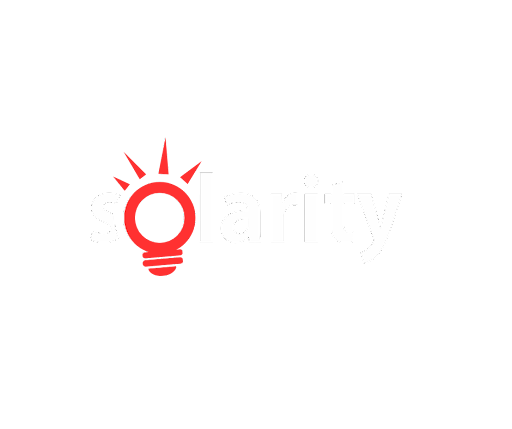Harnessing the power of the sun through solar panels is becoming increasingly popular as the world moves towards sustainable energy sources. But the electricity generated by solar panels isn’t immediately ready to power your home. This is where solar inverters come into play, playing a crucial role in any solar energy system. Let’s break down what solar inverters are, their types, and how they integrate with other components like charge controllers.

What is a Solar Inverter?
A solar inverter is a device that converts the variable direct current (DC) output of a solar panel into a utility frequency alternating current (AC) that can be fed into a commercial electrical grid or used by a local, off-grid electrical network. It is a critical BOS (balance of system) component in a photovoltaic system, allowing the use of ordinary AC-powered equipment.
The Role of an Inverter
Solar panels produce DC electricity as sunlight stimulates electrons to move through solar cells. Most homes and appliances, however, operate on AC electricity. The inverter’s job is to transform the solar-generated DC power into AC power, making it compatible with the electrical systems of residences and businesses.
Types of Solar Inverters
When selecting a solar inverter, you have a few different types to choose from, each with its own advantages and applications.
Solar Generator Inverters
Solar generator inverters are the most cost-effective and suitable for systems without shading issues. Solar generator inverters are the most common type of inverter used in home and commercial solar installations. Multiple panels are connected in a series, forming a “solar,” which is then connected to a single inverter.
Hybrid Inverters
Hybrid inverters, also known as multi-mode inverters, combine a solar inverter with a battery inverter in a single unit and can efficiently manage energy storage systems.

The Importance of a Solar Inverter Charge Controller
The solar inverter charge controller is an essential part of a solar energy system. It regulates the voltage and current coming from the solar panels to the batteries. Overcharging can reduce battery performance and lifespan, and a charge controller prevents this. In systems with a hybrid inverter, the charge controller is often integrated into the unit, simplifying installation and improving efficiency.

Conclusion
Understanding the basics of solar inverters is essential for anyone considering a solar installation. Whether you choose a solar generator inverter, microinverter, or hybrid inverter, it’s important to ensure that your inverter is compatible with your solar panels and matches your energy needs. With the right inverter and charge controller, you can optimize the performance of your solar energy system and enjoy the benefits of clean, renewable energy.
If you’re looking to transition to solar power, make sure to consult with a professional who can guide you through selecting the right components for your solar energy system.
Looking For Ways to Save money
The process is easy!
1
Tell us exactly what you need
If you’re looking to purchase a solar light or solar generator to power your home, determining the number of watts the solar light and solar generator will need to run all your appliances can be a daunting task. But really, it’s just a matter of simple math. With just a few easy steps, you can figure out how many watts you need to run your home, and if you cannot figure it out yourself, contact us today for more information.
2
Get 10% Discount
Then, if you have decided to go for solar, give us a call back to inspect the location, building, and wattage.
3
Enjoy your purchase!
Thank you for your purchase and for joining our mailing list. We look forward to having you be one of the first to find out about the exclusive deals, new arrivals, and big events coming up.
Ready to Go Solar? Get a quote now!
How do I choose the right inverter for my application?
Choosing the right inverter for your application involves several important considerations. Let’s break down the key factors to help you make an informed decision: Power Requirements: Accurately determine the power needs of your system. Consider the wattage ratings of all devices you plan to connect to the inverter. Add up
What is the efficiency of inverters?
The efficiency of inverters typically ranges from 90% to over 98%, depending on various factors such as the type of inverter, operating conditions, and load characteristics. Here are some key points regarding inverter efficiency: Peak Efficiency: This is the highest efficiency that an inverter can achieve under optimal conditions. Modern
How do solar street lights impact the environment?
How do solar street lights impact the environment? Solar street lights have a positive impact on the environment due to their sustainable and eco-friendly features. Let’s explore how they contribute to a greener future: Reduced Carbon Emissions: Solar street lights significantly reduce carbon emissions compared to traditional grid-powered lights. Unlike fossil fuel-based electricity generation,
How Do I Choose a Good Solar Street Light?
Choosing a good solar street light involves considering several factors to ensure that it meets your specific needs and provides reliable performance. Here are some tips to help you select the right solar street light: Determine the Type of Solar Street Light: Split Solar Street Lights: These have separate components,
Are solar street lights sustainable?
Are solar street lights sustainable? Yes, solar street lights are sustainable. They harness renewable energy from the sun, reduce carbon emissions, and contribute to energy resilience. There are several reasons: Renewable Energy Source: They harness the sun’s energy, which is a clean and inexhaustible power source. Reduction in Carbon Footprint:
What are the pros and cons of solar lights?
Let’s explore the benefits and drawbacks of solar lights to help you make an informed decision. Solar lights are eco-friendly, cost-effective, and easy to maintain. Consider your specific requirements, and choose solar lights that align with your preferences and outdoor aesthetics. Pros of Solar Powered Landscape Lights No Electrical Connection
© 2024 Movely. All Rights Reserved.
